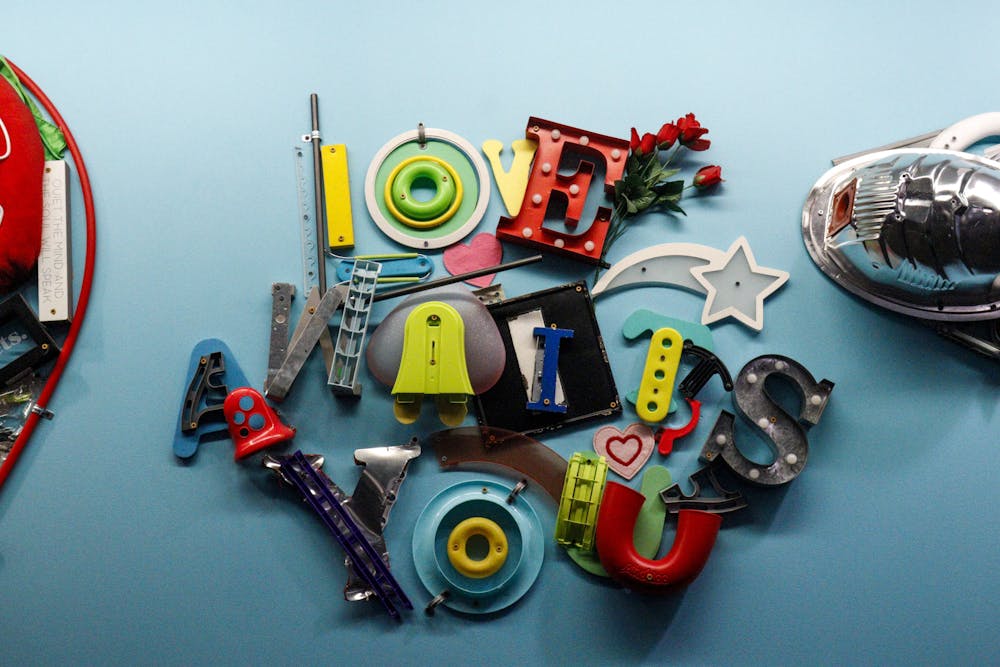
Columnist Simar Soni discusses Generation Z's affiliation with situationships.
Credit: Courteney Ross“So, you guys go on dates, hook up, and are exclusive, but aren’t dating?” I stared at my friend in disbelief when she told me about the boy she had been seeing for the past three months.
She replied, “Yeah, it’s kind of a situationship.”
I simply could not wrap my head around how and why this would be the case. It was clear that they liked each other and were exclusive. Why not just make it official and call it what it is? If you break up, then you break up — rejecting a formal label does not eliminate the pain of ending a monthslong monogamous partnership.
Her story is not unique. We are living in an epidemic of unseriousness. According to YouGov, half of all 18-to-34-year-olds have been in situationships. A survey from The Belonging Forum found that many people say they have no close friends. Ultimately, Generation Z has a phobia of vulnerable relationships with any sort of official label.
This level of fear transcends our romantic and platonic endeavors. We’re the post-Sept. 11, 2001 generation. Social media and the hypernegative news cycle have left us in a constant state of information overload. But it’s not just us. Many Generation X parents also grew skeptical and individualistic, leading to an overprotective parenting style — what many would define as “helicopter parenting” — which taught us to fear meaningful connections with the outside world. Quarantine during the COVID-19 pandemic threw us into an environment of isolation, but we had learned the lesson of loneliness years before. From childhood, we were taught to be wary of the world and suspicious of those around us. We are desensitized to feeling passion and often circumvent the feeling of the full depth of tragedy, choosing instead to joke about the news or avoid serious conversations altogether.
We’re a risk-averse generation, constantly functioning under fear and the framework of loss. Driving is risky, relationships are risky, friendships are risky. According to Business Insider, we’re less likely to engage with all of these. Hinge even reported that 56% of its Gen Z users said their fear of rejection interfered with pursuing a relationship and 57% admitted they refused to confess their feelings for fear it was a turn-off. To put it simply, most situationships are irrational and align with prospect theory: the idea that people prefer to avoid loss than take risks for equivalent or higher gain. This is stated best in bell hooks’ book “All About Love: New Visions”: “Young people are cynical about love. And cynicism is the great mask of the disappointed and betrayed heart.”
This fear of love infiltrates every single one of our relationships, including platonic ones. Our parents’ friends were a knock away. People would comfortably go over to their friends’ houses even if there was laundry strewn around and dishes in the sink. At Penn, we schedule coffee chats with potential friends and feel the need to make our rooms spotless before anyone enters.
In all honesty, I understand the appeal of a gray, expectationless space. In a world of uncertainty, keeping our lovers and friends at arm’s length seems like the most practical tactic for self-preservation. However, situationships are open by definition. They are pointless when you have an expectation of commitment. The thrill of a casual dynamic is lost when you introduce exclusivity. While many of us have found ourselves in situationships, the vast majority of them blow up once unspoken or spoken rules are broken. But whenever I feel pessimistic regarding romance, I remember iconic 2000s sitcoms like “Girlfriends” or “Sex and the City.” Every episode, there was a new boyfriend. Though these partners were fickle, they always advanced the plot. Sure, turning your situationship into a relationship could end terribly. However, it is a learning experience nonetheless. At best, you find your future life partner. At worst, you break up and realize what you actually need to become a better partner, and have fun while learning something about yourself in the process.
So, how do we get more serious?
First, we must recognize the value of vulnerability and abandon idealism as our only goal for relationships. As Ivy League students plagued with preprofessional perfectionism, we live a life full of choice, searching for the perfect partner on Instagram or Tinder. We fail to realize that relationships — even casual relationships with the wrong person — can bring about meaningful growth.
But most importantly, we must be like our favorite sitcom characters. Sure, they had new partners every episode. But they called their casual relationships what they were: a relationship. While the blurred lines of a situationship may delay the fears, anxiety, and heartbreak, they don’t avoid it. So jump in and do it for the plot! Make that exclusive situationship a real relationship. Knock on your friends’ doors and fight the fear of intimacy that has gripped us for years.
SIMAR SONI is a College first year studying political science from Danbury, Conn. Her email is simars@sas.upenn.edu.
The Daily Pennsylvanian is an independent, student-run newspaper. Please consider making a donation to support the coverage that shapes the University. Your generosity ensures a future of strong journalism at Penn.
Donate












